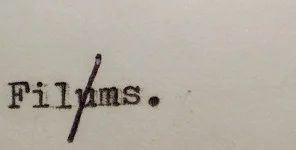Reviewed by Drew Ninnis.
Country: Finland
Director: Taru Mäkelä
Screenplay: Raija Talvio
Runtime: 104 minutes
Cast: Kati Outinen, Miroslav Etzler, Elena Leeve, Krystof Hádek.
Trailer: “We present to you, Yuri Gagarin, this bread.” (warning: you'll be as disappointed.)
Viewed as part of the inaugural Scandinavian Film Festival 2014.
Plot: Set in 1960s Finland, August Fools features old lovers Jan (from Czechoslovakia) and Elsa (from Finland) stuck on different sides of the Iron Curtain. When a student communist festival offers jazz musician Jan an opportunity to travel toHelsinki and reunite with Elsa, he jumps at the chance and plans to defect to the West along the way. However, milliner and part-time clairvoyant Elsa is not so sure; risking the comfortable, bourgeois life she has built for herself.
Review: August Fools falls into that strange category of Cold War comedy, attempting to cash in on a set of established audience fetishes: for the Sixties, for the dysfunctional Soviet system, and for quirky Nordic comedies. This perhaps explains why the film is pleasant, unchallenging, in parts dull, and overall inoffensive but forgettable. The direction and performances are competent, while the staging and cinematography is warm, colourful, and comforting. If you are a fan of films that putter along pointlessly, like Aki Kaurismäki’s Le Harve (or really any of his empty, pseudo-proletarian work), then you are in for an enjoyable time.
The action centres on pillar of the community Elsa, a sixty-something spinster who runs a successful hat store in the genteel suburbs of Helsinki. She is assisted by her young niece Irmeli, who wants nothing more than to break away from the dull work of the shop for a few hours and party with the students gathered for the local communist festival. Led astray by her vivacious friend, Kaarin, she does that – falling in love with the youthful leader of the jazz musician delegation from Czechoslovakia. Elsa, meanwhile, is confronted by the distraught chief-of-police, a personal friend who urges her to use her psychic powers (oh yes, old Elsa is a clairvoyant who occasionally assists the police) to find his missing housemaid and love. Add to the mix Jan, a musician from the Czechoslovakian delegation and old lover of Elsa. He comes to win back her heart, and steal a few more moments before the Iron Curtain separates them again.
Sound like a mess? Oh, sure. But this film aims to be charming and quirky, rather than coherent. A few MacGuffins are thrown in, a bump or two in the road, some laughs at iconic sixties products, as well as Yuri Gagarin and Lee Harvey Oswald. Yes, you read that last one right – Oswald forms the punchline to one of the few audacious jokes in the film. Beyond that, it is a smooth ride to the inevitable conclusion of lovers being reunited. That may sound like damning with faint praise, but the ambitions of the film are low; the praise faint because although you shouldn’t go out of your way to see this film, if it is late at night and nothing else is on then it enjoyably fills the time.
On one level, films like August Fools are disappointing because they hail from one of the most significant genres of film in the late 20th century. ‘Cold War comedy’ is a genre that holds classics such as Leonid Gaidai's The Diamond Arm , Věra Chytilová’s Daisies, or Milos Foreman’s The Firemen’s Ball (1967) – a film that burns the party banner in the opening scene, where the prizes in the raffle are progressively stolen by the corrupt firemen and wives running it, and the beleaguered captain is berated by his wife with “Everyone is stealing here and you only watch, you honest idiot.” Something significant is at stake in those films; and drawing on the deep communist tradition of samizdat literature, they aim to subvert the oppressive political narrative with the sharp knives of humour. Significantly, these films were made at the end of Kruschev’s thaw – a short period of freedom of expression in Soviet art and filmmaking, that was quickly silenced as Russian tanks rolled into Prague. This was how a film as innocuous and popular as The Diamond Arm could include one character insulting another with the curse “May you be forced to live on your salary alone!”
Something was at stake in those films; and they expressed the disillusionment of a generation that was raised on and believed in the positive Soviet ideals encountering the grim, hypocritical Soviet reality. They are the funniest films – because their humour comes from a place of pain and betrayal, turning that towards political purpose. And because the jokes are the lightest things in the world – aimed unerringly at the heaviest matters.
There is nothing at stake in August Fools; none of the barbs are aimed at either the past or the present. The jokes are light, full of folly, but ultimately poking fun at the same human frailties Aristophanes skewers in The Clouds, nearly two and a half millennia ago. Without some sharpness, or some pain of uncomfortable recognition, a film like August Fools becomes less a comedy and more just a pleasant diversion. Comedy doesn’t always have to bring down regimes to succeed, but it does need some weight to it.
Rating: Two missing members of the Czechoslovakian delegation, presumed dead.

